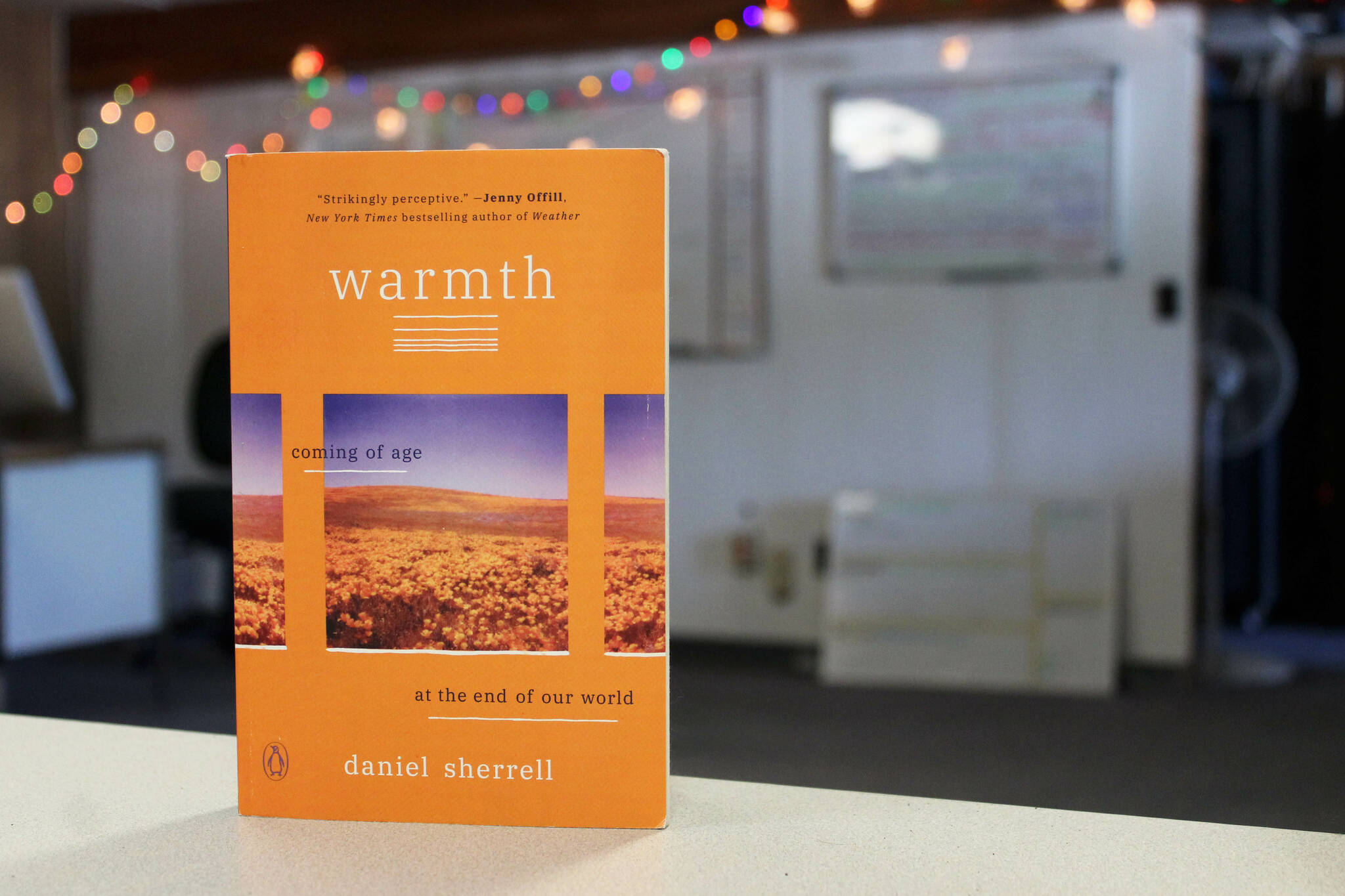Leading up to Earth Day this year, I sought out books that offered a new way of looking at a problem I view as inseparable — climate change. I’ve been reading a lot about climate change and the environment over the last month or so (see the most recent two Off the Shelf columns) and sometimes feel the presentation of information is redundant.
It was for that reason that I found myself purchasing a copy of Daniel Sherrell’s 2021 book “Warmth: Coming of Age at the End of Our World.”
The work, Sherrell’s first book, is framed as a letter to Sherrell’s not-yet-born child that started as a series of thoughts written in the “Notes” app on his cellphone. Sherrell refers to climate change only as “the Problem” and describes himself to readers as “a twenty-something who spends an above-average portion of his time thinking or trying not to think about the end of the world.”
“I realized that if I was ever going to actually start a family — if I was going to move you from the flourishing world in my palm into the collapsing world at hand — then I’d owe you an honest account of why,” Sherrell writes.
The book doesn’t offer a lot of room for hope when it comes to the climate crisis. It is at times nihilistic and in one chapter devolves into musings on the appeal of antinatalism, at all times narrated by someone with a grim outlook for the future of the world. Still, the level of candor with which Sherrell presents his ideas is not one I’ve encountered in other books about climate change.
At no point did Sherrell’s perspective — presented in beautiful prose — come across as disingenuous. Although some passages came off as melodramatic, it felt like that was the point. According to Sherrell, if it feels like the world is ending that’s because it is.
To be fair, the issue is also one Sherrell has opted to revolve his life around. His parents followed the issue in their capacity as scientists and much of the book is spent reflecting on the time Sherrell spent as a climate activist, particularly as a campaign manager for NY Renews.
Any young person will surely feel seen by Sherrell’s descriptions of what it can sometimes look like to be a 21st-century worker: hastily jotting down thoughts in a cellphone note and constantly refreshing email while on the go.
What I think will uniquely resonate with younger millennials and Gen Z, however, is the ever-present feeling of tension and, sometimes, panic that comes with thinking that you could see the end of the world in your lifetime. It was refreshing to recognize in another the feeling of despair that sometimes comes when thinking about the implications of a changing climate.
“I remember feeling a sense of muted shock: Something long-anticipated was finally happening,” Sherrell writes of Hurricane Sandy, which left his grandmother without power. “Not just happening, but happening to us.”
I think that, for a lot of younger people, climate change isn’t an abstract concept that future generations will have to deal with. Rather, it’s a set of circumstances that we’re already living through, and that are expected to become more severe.
The book’s first chapter, called “Correspondence,” was first published in 2019 by Passages North as “Hunters in the Snow,” a reference to the 1565 painting of the same name by Pieter Bruegel the Elder that Sherrell references throughout the book.
“Warmth: Coming of Age at the End of Our World” was published in 2021 by Penguin Random House LLC.
Reach reporter Ashlyn O’Hara at ashlyn.ohara@peninsulaclarion.com.
Off the Shelf is a bimonthly literature column written by the staff of The Peninsula Clarion that features reviews and recommendations of books and other texts through a contemporary lens.

